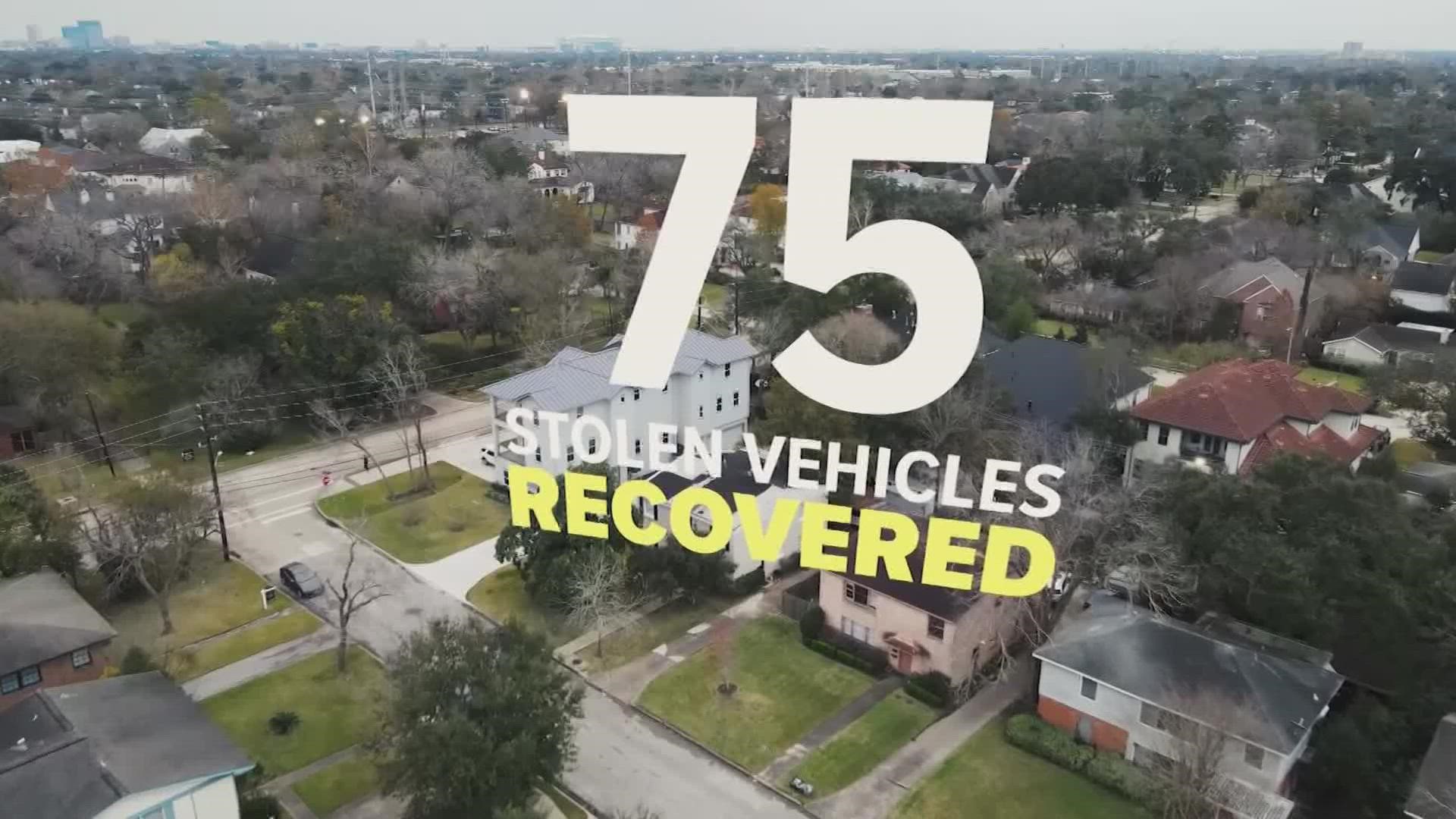HOUSTON — Some Houston-area cities are fighting crime by installing virtual gates around their communities. Dozens of cameras are taking millions of pictures of driver's license plates each month.
One local police chief said the technology helped catch 25 times as many suspects in wanted vehicles as the year before.
Each time a vehicle passes one of the automatic license plate reading cameras in the Memorial Villages, a picture is taken.
“What we’re doing is we’re scanning license plates as they pass by,” Memorial Villages Police Chief Raymond Schultz said.
It reads, scans the plates, then checks them against law enforcement databases for stolen or wanted vehicles.
If there’s a hit...
“Notice automatically goes to our dispatch center and our officers in the field,” Schultz said.
The Memorial Villages' network of 30 cameras dotting the nine square-mile territory west of Houston proper is a game-changer, Schultz said.
“Not only helping protect the community but also helping solve crimes throughout Houston,” Schultz said.
The automated license plate readers, also known as ALPRs, were put into service across the Memorial Villages last year.
The chief says the technology helped officers to recover 75 stolen vehicles in 2021.
The average before ALPRs was three per year.
“Pretty darn good,” Schultz said.
He says 61% of the “hits” from the ALPRs last year were from vehicles involved in crimes.
“We’ve arrested people from stolen cars to stolen mail, home invasions, people that are identity thieves, people in possession of other stolen property, people in possession of stolen firearms, wanted fugitives, you name it,” Schultz said.
The residents who spoke with KHOU 11 said the addition of ALPRs to their community has been a good thing.
“If we’re going to be part of society, I think we need to have rules and they need to be enforced,” one Memorial Villages resident said. “So if we have the ability to have high technology to help catch the criminals who are driving through I think that’s great.”
The technology doesn't come without its critics.
“They can be appropriate and even beneficial tools to solve serious crimes, but without those safeguards, the tools can raise serious privacy and transparency concerns,” said Nick Hudson with the ACLU of Texas.
“We don’t want the government to be able to have information that allows it to piece together where people go to church, who they’re seeing and what neighborhoods they’re hanging out in,” Hudson said.
Schultz said the cameras take a shot of a vehicle’s rear license plate, nothing else. He said the picture file is stored in the cloud for 30 days, then it's deleted.
Agencies choose which criminal-offense categories trigger a hit.
In addition to stolen vehicles and missing persons, the Memorial Villages Police Department is alerted each time a registered sex offender drives past their cameras.
“For the month of December, I had five sex offenders come through the Villages,” Schultz said.
Because the chief said there are no registered sex offenders living in the villages – he took a closer look.
“I was getting hits, but only on Sundays,” he said. “It was someone coming here to go to church.”
The chief said he doesn’t have a problem with that, but he said if there’s ever an issue at a school or a daycare, the plate numbers collected by the cameras could be useful.
Other neighborhoods using this technology include West University and Bellaire.
Bellaire’s police chief said it made 452 arrests last year because of the technology.
Both cities are buying more ALPRs.

